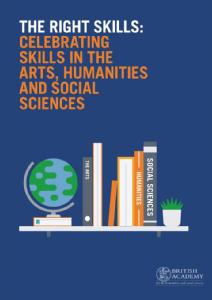IER News & blogs
New UK Working Lives Survey

In April the CIPD launched the first report from its new UK Working Lives Survey . It found that whilst half of respondents would work even if they didn’t need the money, over half of respondents also said that their jobs fail to provide decent career development. A team from IER helped develop the survey tool and analyse its results, with Dr Sudipa Sarkar seconded to the CIPD as part of this work.
Developing a post-Taylor Report measure of job quality for the UK
 Last year’s Taylor Review of Modern Working Practices recommended that the UK Government establish a measure of job quality. IER Director Chris Warhurst has been invited to sit on a working group in support of that recommendation organised by the Carnegie Trust UK and co-chaired by Matthew Taylor. It is due to report in early summer 2018.
Last year’s Taylor Review of Modern Working Practices recommended that the UK Government establish a measure of job quality. IER Director Chris Warhurst has been invited to sit on a working group in support of that recommendation organised by the Carnegie Trust UK and co-chaired by Matthew Taylor. It is due to report in early summer 2018.
IER research informs the new British Academy report on the skills of graduates of Arts, Humanities and Social Sciences (AHSS)

The British Academy has launched its new report on the skills of AHSS graduates.
IER was commissioned by the British Academy to conduct mixed-methods research to identify AHSS graduates’ and employers’ perceptions of their skills, the benefits of AHSS graduates to the economy and to society and the need for any further skills development. The research, involving a comprehensive review of existing literature, analysis of 3 different quantitative data sources, focus groups with 22 graduates and postgraduates, and interviews with 6 employers, found that graduates with more creative approaches to work will be highly valued in the future and, if AHSS graduates can combine their creativity with good technical skills, they will be highly sought after. Those with narrow skill sets are more likely to struggle in the labour market, except in niche areas where there may be a shortage of particular skills. The research was led by Dr Clare Lyonette, with Dr Wil Hunt and Beate Baldauf, and the IER report has been published on the British Academy website.
New Futuretrack Reports: Ten Years On - and the impact of the pandemic on graduate careers
 The publication of the Futuretrack Stage 5 study conducted in 2019, led by Professors Peter Elias and Kate Purcell and funded by the Nuffield Foundation, showed ‘how the majority of graduates had by then achieved reasonable job security, with many balancing work and parenting or other caring roles when the pandemic hit’ (see press release). In 2020, the research team went back to respondents to investigate how they had been affected by the Covid restrictions and economic impact and conducted Futuretrack Stage 6.
The publication of the Futuretrack Stage 5 study conducted in 2019, led by Professors Peter Elias and Kate Purcell and funded by the Nuffield Foundation, showed ‘how the majority of graduates had by then achieved reasonable job security, with many balancing work and parenting or other caring roles when the pandemic hit’ (see press release). In 2020, the research team went back to respondents to investigate how they had been affected by the Covid restrictions and economic impact and conducted Futuretrack Stage 6.
For full details of the research see:
- the report on the Covid-19 impact: Covid 19 and graduate careers
- a slightly revised version of the report published in March 2021: Ten Years On – the Futuretrack Graduates
- a short report that summarises and draws the implications of both the above What a difference a year makes: the impact od Covid 19 on graduate careers
Should lookism be banned?
 On 23 May BBC Radio 4’s broadcast a programme featuring IER Director Chris Warhurst talking about employment discrimination based on worker appearance – ‘lookism’. The talk centred on whether lookism is a legitimate business practice or should be banned as a form of illegitimate discrimination. The talk was recorded with a live audience at Coventry’s Fargo Village.
On 23 May BBC Radio 4’s broadcast a programme featuring IER Director Chris Warhurst talking about employment discrimination based on worker appearance – ‘lookism’. The talk centred on whether lookism is a legitimate business practice or should be banned as a form of illegitimate discrimination. The talk was recorded with a live audience at Coventry’s Fargo Village.
The programme, part of the Four Thought series, is available on BBC iPlayer
